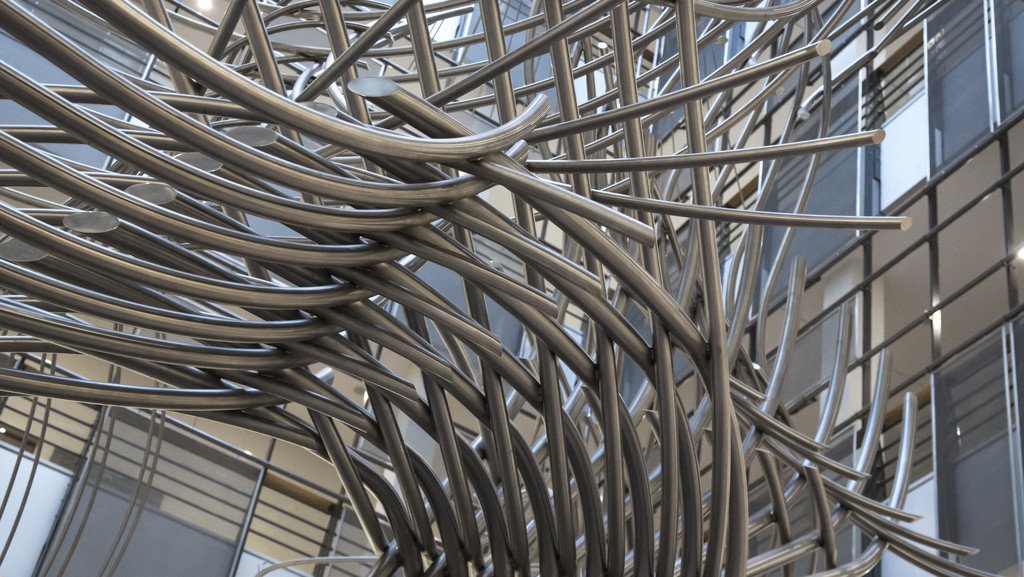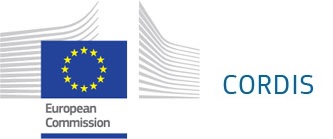A plea for Constitutional Faith, a New Old Understanding of Freedom and a Constitutional Convention by Professor Müßig for download:
The original ReConFort's objectives have already been successfully completed. This does not mean that the ReConFort team’s work is done, and we are far from finished with the topic. What are common aspects of European constitutions, reflecting shared values and beliefs that extend across geopolitical borders? Conversely, what values are unique to individual constitutions, which are emphasised for greater effect, and why? How much value is placed on human dignity in other contemporary constitutions? Are freedom, equality, and human dignity synonymous, or do they stand for different and sometimes divergent goals?
If you're interested in more details, be sure to visit our Research Blog at https://www.reconfort.uni-passau.de/en/blog

Europe is looking for its raison d'être. The challenges posed by the Brexit chaos, by the nation-state undermining of the rule of law in Poland and Hungary, and by politically disenchanted protest movements such as the French Yellow Vests are to be met by ‘more Europe’. More Europe requires more efforts, above all for a European public sphere. This is where the ERC research project ReConFort (www.reconfort.eu) offers its own contribution, extending its conclusions concerning the communication dependency of historic constitutional processes to the future of the European Union.
Within the EU, the rule of law is of particular importance. The respect shown to the rule of law is the foundation of all the fundamental values listed in Article 2 TEU and all rights and obligations deriving from the treaties and from international law. The mechanism of Article 7 TEU, however, is not operated as an ‘aseptic’ sanction. Rather, it is to be operated in conjunction with a ‘continuous communication of the common values in and with participation of public sphere.’ (COM/2003/0606) This communication dependency is what ReConFort stands for.
Two centuries ago, the protagonists of the early European constitutionalism were fully aware of the necessity of a participating public as vital part of constitutional processes. To them, the key categories of constitutional discourses – the concepts of national or constituent sovereignty, the precedence of constitution, the judiciary acting and existing as a constituted power in its own right, and the justiciability of politics and rule of law – were of primary importance not only to theorists but to those involved in the constitutional processes. Today, as then, these concepts are not and should not be merely of isolated academic interest in the proverbial faraway ivory tower. Rather, they provide the ‘epitomes’ of modern constitutional issues, whose public discursive formation builds up a unique European source of identification, and is at the heart of the European common identity.
Constitutional texts did not statically fix the legal relations of the pouvoirs constitués, but were instead evolutionary results of the interplay of the drafting process, text, societal context, the political practice, and the constitutional interpretation. In the same way, the rule of law, which forms the basis of European legality and the concept of justice, and which requires that ‘all political society’ (Art. 2, also Art. 16) is built on the ‘natural, inalienable and sacred rights of man’ (Preface to the French Declaration of the Rights of Men 1789), is not an immutable and invulnerable truth forged from iron or carved into stone. It required communication, and it must still be communicated today. The French and American revolutionaries of the late eighteenth century were convinced of this, having been fully aware that legitimacy is created through consent and the positive agreement of the citizens. Their ‘belief in sovereignty’ went along with the ‘religious affinities’ in the preambles of early constitutionalism. It would be incorrect to understand such an affinity as a recourse of the constituents to divine authority for writing a constitution. Rather, it crucially meant the communication of these central rule of law bases as philosophical truths with a claim to eternal validity, to be honoured but also to be promoted and defended.
Specified rule of law standards, explained in their common European historical origins, can serve as the nucleus of the discourses concerning what separates us and what unites us. The lessons of the last century have shown us that there is no recourse to making the nation great again; nationalists have nothing to offer Europe except its destruction. The human longing for agency (and, as the Brexiteers have vocally demonstrated, the desire to ‘take back control’ that is believed lost) needs appropriate answers and, after the digital revolution, the political establishment of the national democracies has thus far failed to provide them. This is Europe’s chance, as well as its responsibility: to stand up and declare, clearly and unequivocally, that there will not be any answers on a national level, and to prepare the ground for an overall commitment to ‘more Europe.’
What unites us Europeans – what has made Europe so attractive for the generations of young African and Asian migrants in particular, who have come to Europe with hopes and dreams of building new lives – is the fact that we share common values: a community of peace, based on democracy, the rule of law, and human rights. These common values, however, must not be allowed to wither; they require protection and promotion. The European Commission has stated that the respect for common European values needs a public discourse, and that this discourse must be aware of the important monitoring role of civil societies, both in protecting and in promoting the rule of law and fundamental rights.
The European Union is first and foremost a Union of the rule of law. Far beyond the academic richness of theoretical explanations, the Union is governed by the rule of law in a very literal sense: it is the European Court of Justice that has offered the United Kingdom the ‘legal trick’ of a unilateral withdrawal of its Art. 50 trigger to leave. The historically-grown trust in the law to be the last resort in insolvable conflicts, as the claims for the legally competent judge in the religious clashes of the sixteenth and seventeenth century had exemplified, is that which speaks to the hard core of the Union’s identity. Thus, the public awareness of the European heritage of the rule of law enables every citizen to identify with it. To reinvigorate, animate and vitalise the identification with the rule of law overcomes the notorious shortfall of a true popular identificatory movement, had the Union merely stood for economic integration of the internal market, conveyed primarily through market freedoms. Thereby, the common constitutional traditions reveal the constitutive functional conditions of a European public sphere and allow the development of a ‘discursive formation of opinion and will by an (European) audience of citizens’, as Habermas has put it, as a prerequisite for democracy (Strukturwandel der Öffentlichkeit - Untersuchungen zu einer Kategorie der bürgerlichen Gesellschaft, p. 38).
A new, deeper understanding of the historical foundations of our common constitutional heritage will empower national and EU stakeholders to solve the contemporary issues of the European integration. Europe’s future depends on an informed public discussion. It is ReConFort’s eagerness to contribute to this.

The EU Community Research and Development Information Service (CORDIS) has published an article on the results of the ReConFort project:
You can find the full article here: